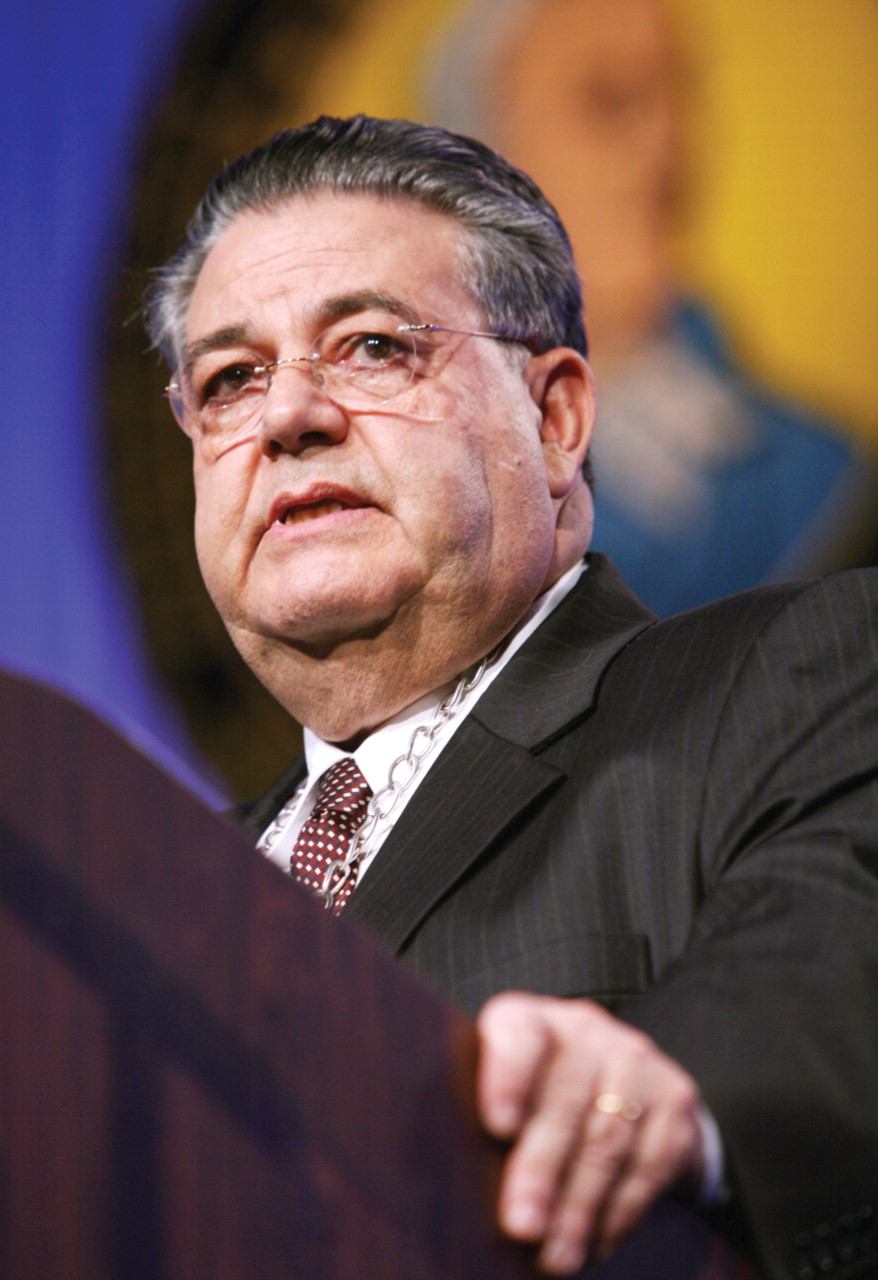In a voice filled with passion and urgency, APA President Pedro Ruiz, M.D., instructed colleagues at APA's 2007 annual meeting last month in San Diego that they—along with him—must continue to work toward achieving the “promised land” for people with mental illness through eradicating barriers to mental health care and establishing a system in which high-quality, humane care is available to all.
“My fellow psychiatrists,” said Ruiz at the meeting's Opening Session, “we must have the courage to do it. We must provide humane care. The future and image of APA and our profession depend on it. We must do it, and we will do it together with the National Alliance on Mental Illness [NAMI], Mental Health America, and any other advocacy group that has the courage to do it with us.”
He spoke with particular intensity about mentally ill people who exist on the fringes of society and evoke little empathy from Americans living comfortable lives. Among them: people who have no health or mental health insurance, members of minority groups who cannot get culturally competent mental health care, homeless mentally ill individuals, mentally ill people who are warehoused in jails and prisons because of inadequate community mental health services and resources.
Ruiz continued, “It is our social responsibility, as psychiatrists and citizens, to ensure that humane care will not just be a privilege for some, but a right for all human beings who live in the United States, as well as in every country in the world.... What are we going to do? How much inhumane care do we have to observe in our daily practices and society at large before we say enough is enough?”
Ruiz himself reached that point many years ago, and his term as APA president gave him another national platform to continue his efforts to right these wrongs.
To an audience of about 1,000 psychiatrists and guests, he spoke of the many initiatives and actions he had undertaken during this past year to follow through on the theme he had selected for his presidency: “Addressing Patient Needs: Access, Parity, and Humane Care.”
Ruiz reminded his audience that at last year's annual meeting he had said that addressing the three prongs of his presidential theme required APA to build “strong, genuine” partnerships with patient-oriented advocacy groups. He got to work on that task immediately by inviting Suzanne Vogel-Scibilia, M.D., the president of NAMI, to address the Board of Trustees at its July 2006 retreat and meeting. He and Vogel-Scibilia went on to plan a formal APA/NAMI leadership meeting that took place last December in which common issues and goals were identified (Psychiatric News, January 19). Both organizations appointed individuals to a work group to turn plans into action.
That professional ethics and values were central to Ruiz's presidency was evidenced in numerous ways throughout this past year. One was the selection process of DSM-V's leadership. At a time when medical researchers were being criticized for using funding by sources that had a vested interest in the studies' outcomes, Ruiz wanted “the most transparent and ethically driven policy that one could humanly design” for selecting leadership of DSM-V. The results were a rigorous screening process that all nominees of the DSM-V Task Force and working groups had to undergo and the creation of a conflict-of-interest disclosure form “that is second to none in the medical field.”
Another example was Ruiz's visit to Guantanamo Bay Naval Station last November. One reason that he accepted the invitation from the Department of Defense to visit the camp—marking his first return to Cuba since leaving there at the age of 21—was “to pay respect” to the psychiatrists and other health care personnel who were working there under“ the most difficult and challenging circumstances. As your APA president, the well-being of even one APA member is as relevant, or even more important, to me than any political ideology, including my own.”
He was among the APA leaders who opposed the participation of psychiatrists in the interrogation of prisoners and detainees, which led to the approval of an official position statement to that effect last year (Psychiatric News, June 16, 2006).
Paralleling Ruiz's initiatives to strengthen APA's relationship with advocacy groups were initiatives to do likewise with the National Institute of Mental Health, National Institute on Drug Abuse, and National Institute on Alcohol Abuse and Alcoholism.
Ruiz noted that the two psychiatrists in line to succeed him as APA president—Carolyn Robinowitz, M.D., and Nada Stotland, M.D., share his commitment to achieving humane care and have the personal and professional qualities needed to do so. “Thus, let's continue to use our principles, let's continue to use our values, and let's continue to operate our APA within a framework of social responsibility.”
Nonetheless, the end of Ruiz's term as president does not mean it's time for him to step aside and let them and others carry on the battle.
“I am not planning to fade away,” he declared to a standing ovation. “As long as there is a mental patient without access to health and mental health care, without full and comprehensive parity of psychiatric care and without receiving proper humane care, and who is still living in the shadows, whether in this country or in any other part of the world, I will return and join you in the trenches again, again, and again.” ▪

